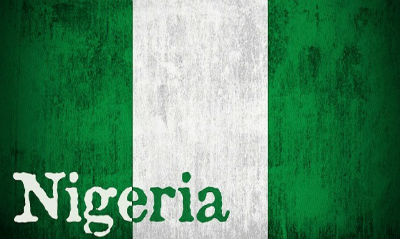Tips on Business Etiquette in Nigeria
02/06/2014Working in a foreign country is difficult. Nigeria is no different. If you are planning on working in or with Africa’s largest economy then there are a few things you should understand about their culture and their ways of doing things – business etiquette is just one of these areas.

Obviously, Nigeria has a different culture than most Western nations and it is definitely advisable to do your research prior to travelling to the country. This can help avoid any frustration during your business dealings as well as help form stronger interpersonal and business relationships. Most importantly it helps you understand the people and manage your own expectations of the country.
So here are some common questions people ask us before taking the leap into Nigeria…
WHAT’S THE LANGUAGE IN NIGERIA?
The national language of Nigeria is English, which is obviously is handy if you are from Europe or N. America. You will be able to communicate clearly in a business setting with many Nigerians. Although tribal languages are still used, they are rarely used in official or formal settings.
That being said, the English spoken in Nigeria may be slightly different than the one you’re used to – many Nigerians speak what is know as “pidgin” which is a blend of English and local languages.
Some Nigerians will speak directly and get straight to the point. This can seem abrasive, but it is typically not meant to be. Other Nigerians enjoy speaking in stories or proverbs in which you should find some humour.
WHAT IS REALLY IMPORTANT FOR ME TO KNOW PRIOR TO WORKING IN NIGERIA?
Relationships. When doing business with Nigerians, you will likely need to devote some time to getting to know each other. Nigerians like to know who they’re working with and will likely spend a large portion of your first few meetings exchanging information about their personal lives. You will be expected to follow suit. If you try to rush the process, you may ruin your chances for quality communication. When Nigerian businesspeople feel comfortable with you, they will start the business negotiations.
HOW DO I MEET AND GREET NIGERIANS?
When you initially greet a Nigerian, you should not rush through the process. A handshake is appropriate, but you should also exchange niceties about one another’s families. Never try to rush into business negotiations without first asking about family.
It should also be noted that Nigerian has a large Muslim population. For some practicing Muslims, it would not be acceptable to shake the hand of the opposite sex. If you are a male, you should wait until a woman extends her hand to shake it and vice-versa.
When entering a room with multiple people, you should greet them based on seniority. For example, the CEO of a corporation should get the first handshake and then everyone else. It’s also customary to avoid eye contact with those who are older than you or your superiors. Engaging in prolonged eye contact can come across as impolite or even aggressive.
Titles are also extremely important to Nigerians. You may even use job titles like “engineer” to refer to a person. Most Nigerians prefer to be referred to with their title. They also prefer to be on a last name basis only until they give you permission to use their first name.
WHAT OTHER ETIQUETTE TIPS CAN YOU OFFER?
Although punctuality is valued in Nigeria, it is not valued quite as much as in many Western nations. You can expect many business meetings to start later than planned. There is nothing inappropriate about this from the perspective of a Nigerian. Dealing with heavy and unpredictable traffic in major cities can also delay business meetings considerably.
Westerners are also commonly put off by the lack of a “social bubble” in Nigeria. Many Nigerians will stand very close to you while talking. This should not be taken as a sign of disrespect. In fact, if you insist on creating space, Nigerians will take that as a sign of disrespect.
Hopefully, these guidelines have provided a better understanding of how to use proper Nigerian business etiquette. In the end, being polite and unobtrusive will take you a long way.
DID YOU FIND THIS USEFUL? If so, we’d love to hear your feedback as we are considering authoring a series on Nigerian business etiquette and culture in the near future.

